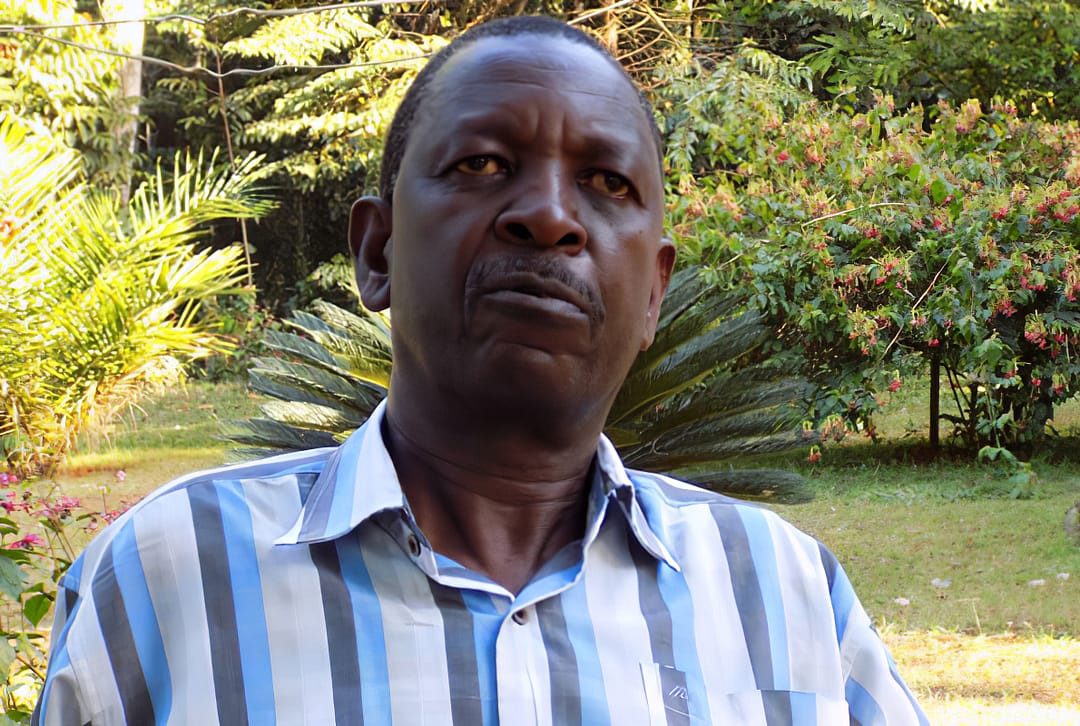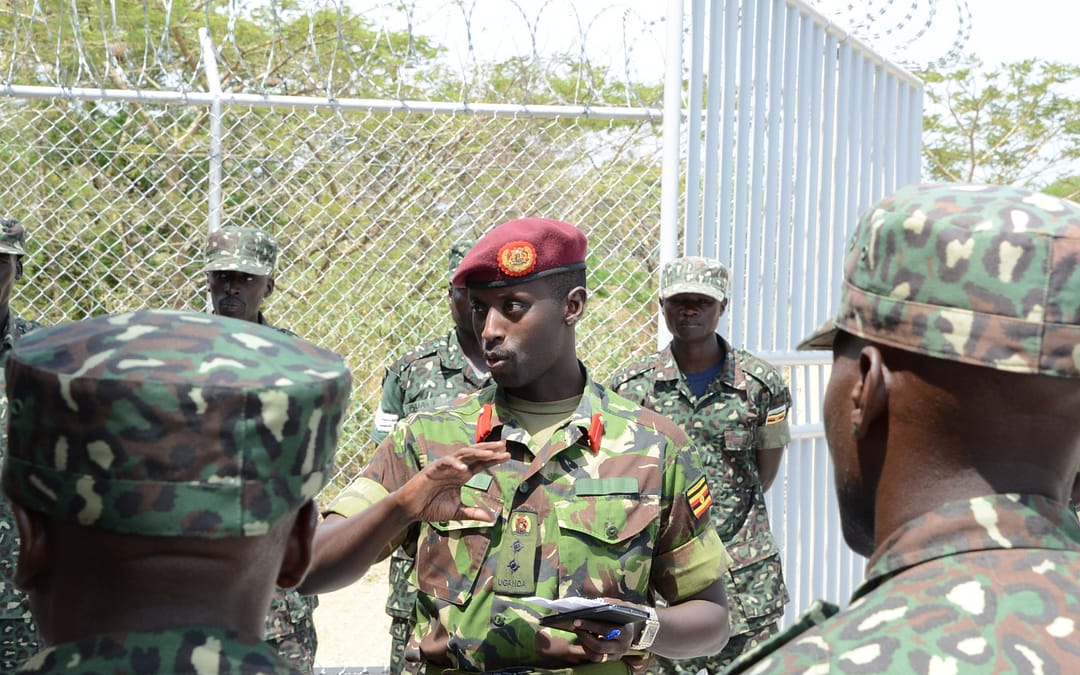Col Kaka Bagyenda, the director general of Uganda Internal Security Organisation (ISO), has defied a High Court order to release a former death row convict who was arrested by security operatives on unknown fresh charges nearly two months ago.
About three weeks ago, the High Court in Kampala directed Col Kaka Bagyenda and the Attorney General to immediately release Evans Bright Africa Gabula, but the order has been ignored.

“I asked to follow them but they stopped me and promised to release him soon…,” he added.
His lawyer applied to the High Court to compel ISO to release Evans Bright Africa Gabula or bring him to court to be charged. On May 28, High Court judge Henrietta Wolayo issued an order directing ISO chief Col Kaka Bagyenda and the Attorney General to release Gabula immediately.
Contempt of court
“The applicant is being held in detention illegally and in violation of his fundamental rights and freedom and upon failure by the respondent to show cause against the continued detention of the applicant,” the court order reads in part.
“I hereby direct that the said Gabula Africa Bright be released immediately from custody of the first respondent,” the judge concluded the order.
Gabula is still in unknown security detention cell. Another lawyer for Gabula said they will apply to the High Court for an order to arrest Col Kaka Bagyenda and the Attorney General for contempt of the court ruling.
Gabula’s wife Tracy Naigaga told us that days before his arrest, thieves broke into their house and stole only his laptop. The second time, they failed because Gabula successfully resisted.
His lawyer does not know the cause of Gabula’s detention. “I can’t tell their interest. All they [ISO] told me is their boss wanted Gabula,” he said
Evans Bright Africa Gabula was a Makerere University student in 1987 when he was arrested. He joined university so young because as a bright pupil, he skipped two classes in primary school.
Evans Bright Africa Gabula was convicted and sentenced to death.
Twenty years down the road, he was saved from the gallows following the ruling on Suzan Kigula’s appeal that decreed that after three years on death row without execution, the sentence be commuted to life imprisonment of 20 years.
Promising economist
Tears fill his eyes and his voice trembles as he narrates how he ended up in jail. In 1986, as a senior six student, Gabula participated in a BBC essay writing competition.
He wrote an essay entitled: ‘Under development in Africa: A Case of False Economics’.
A year later, while in first year at Makerere University pursuing a degree in commerce, he was invited to BBC headquarters in London to collect his prize and present the essay.
Among other profound statements, in his presentation, Gabula reasoned that economic development is a matrix of five components namely; massive research, manufacturing, mining, construction and massive investment in food production.
He said the service sector is part of consumption and not production; but western economists have falsified facts to keep Africa in perpetual dependency to the developed West.
Dream cut short
Gabula’s presentation earned him many invitations to speak in the US and after a while, he founded an organisation, which he called ‘State Union’. He was dreaming of excellent prospects but his dreams came to an abrupt end.
Gabula says many Americans raised money for his organisation, but foreign exchange was not yet liberalised in Uganda at the time.
He had to talk to the then Bank of Uganda chief, Sulaiman Kiggundu, who sent him for vetting to the lieutenant of the then newly founded ISO.
The lieutenant who was excited about the project, facilitated Gabula with all necessary documentation to transfer the $1.2m (about sh2.8b in the current exchange rate).
Once the money arrived in Uganda, the lieutenant took hold of it, arrested Gabula and kept him in a private house somewhere in Makindye.
This was in 1987. With mounting pressure from the International Committee of the Red Cross (ICRC), he transferred Gabula to the then Lubiri barracks, and labelled him a rebel.
Justice Eronget of the High Court ordered for Gabula to be produced in court in 1988. Instead, Kamukama had him charged by a lower grade magistrate and remanded to Luzira.
Gabula says in 1989, the late Justice Margaret Kireju ordered for his release over what she termed frivolous charges.
But his tormentor transferred him to Gadaffi barracks, in Jinja and had him tortured until he signed a confession that he was part of the rebel Ninth October movement.
Tortured and convicted
He says he was beaten, routinely locked in a cell so small that he could not sit or turn, with water constantly dripping on his head. Those drops over several hours would feel like a hammer.
He also claims a five kilogram stone was hung from his testicles. Eventually he relented. Gabula claims that he was added to the treason file of 22 others, allegedly of the Ninth October Army, whom he first met in Kirinya prison.
He was first tried under Justice Margaret Kireju in Jinja. Since she had already known about the case, she said she would set Gabula free upon production of original documents relating to the money.
However, the charges were then withdrawn and the whole group was later tried by another judge in 1992.
In October 1993, Justice Christopher Kato sentenced the group to death. Gabula appealed to a higher court in 1994, but he lost.
Gabula insists that he was the youngest and last to be added to the alleged treason file of suspects, he reaffirms that he was the only one convicted solely on the evidence of the lieutenant and his sister, who he claims both uttered falsehoods.
However, later his death sentence was commuted and he was released in 2013. On December 26, 2014, after nearly 27 years in jail, Gabula was rearrested by security on unknown crime. His wife was expecting their first child. He was released again on February 15, 2015, without being charged.
On April 25, Gabula left his home at Kirinya in Bweyogerere to meet a colleague in Namboole. He did not return. Two hours after his departure, his wife received Shs50,000 on her mobile phone and a follow-up caller, who identified herself as a Mobile Money agent near the High Court. The caller told her: “It’s from your husband. He was driven away. I don’t know the details.”
Gabula has never been seen in public again since then.
This runs contrary to Article 23(4) of the Constitution which states thus: “A person arrested or detained…upon reasonable suspicion of his or her having committed or being about to commit a criminal offence under the laws of Uganda, shall, if not earlier released, be brought to court as soon as possible but in any case not later than forty-eight hours from the time of his or her arrest.”
It is now nearly two months since Gabula’s arrest without being taken to court, meaning his rights under Article 23 (4) of the Uganda Constitution has been violated 15 times the perpetuation is still continuing.
“The day he was arrested, they [security operatives] called and told me they were from ISO and that their boss Col Kaka Bagyenda is the one who needs him,” said Geoffrey Turyamusiima, one of Gabula’s lawyers.
Gabula has walked a turbulent terrain with the State since 1987. That year he was arrested and later tried and convicted of treason. He was sentenced to death.
However, later his death sentence was commuted and he was released in 2013. On December 26, 2014, after nearly 27 years in jail, Gabula was rearrested by security on unknown crime. His wife was expecting their first child. He was released again on February 15, 2015, without being charged. He alleged he was tortured in a safe house, a Ugandan reference to an illegal detention house run by State agents.
In a 2016 interview, Gabula told the media that he had been arrested at the instigation of the brother of the late Lt Godfrey Kamukama, the ISO boss, who first arrested Gabula in 1987. Gabula said his tormentors told him they were punishing him for “defaming” their deceased brother Lt Kamukama. Following the 2014 arrest, Gabula lost his job as a headmaster of Musanya Secondary School in Kamuli.
“Now nobody wants to employ me. They fear I could be arrested again,” he lamented. After his release in 2015, Gabula sued Kamukama’s brother for wrongful detention and torture. He says his civil suit is still pending in court.
“If they have any issue with him let it be known, let him be brought to court,” his counsel Turyamusiima said.
Family in distress
“Tetulina mirembe, okuva taata waffe lwe yabula,” (we are restless since our benefactor disappeared) says Gabula’s mother Naome Nabirye, as she shed tears.
She says Gabula, who she refers to as “father” was the sole breadwinner for the extended family of seven.
“We are sleepless, have nothing to eat, children fall sick anytime…,” says Nabirye, in her 80s.
Gabula’s wife interjected: “Every day the boy asks me, ‘mama where’s daddy?’ I tell him he is coming back. We always pray for him. The boy prays ‘Hail Mary bring back daddy’. But I don’t know whether he’s still alive.”
Gabula was a local farmer in Kapchorwa and later a part-time teacher in Kampala. Their four-year old first-born has dropped out of school for lack of tuition fees. “Their dad bought them yogurt and bananas every day. Now we have to uproot those sugarcane and sell them to buy posho [maize flour for food],” Naigaga added.
- Uganda Politics - 9th March 2024
- POLITICIANS THINK THAT UGANDA OWES THEM ENTITLEMENT - 13th May 2023
- THE YOWERI MUSEVENI DICTATORSHIP MONARCHY - 13th May 2023
























